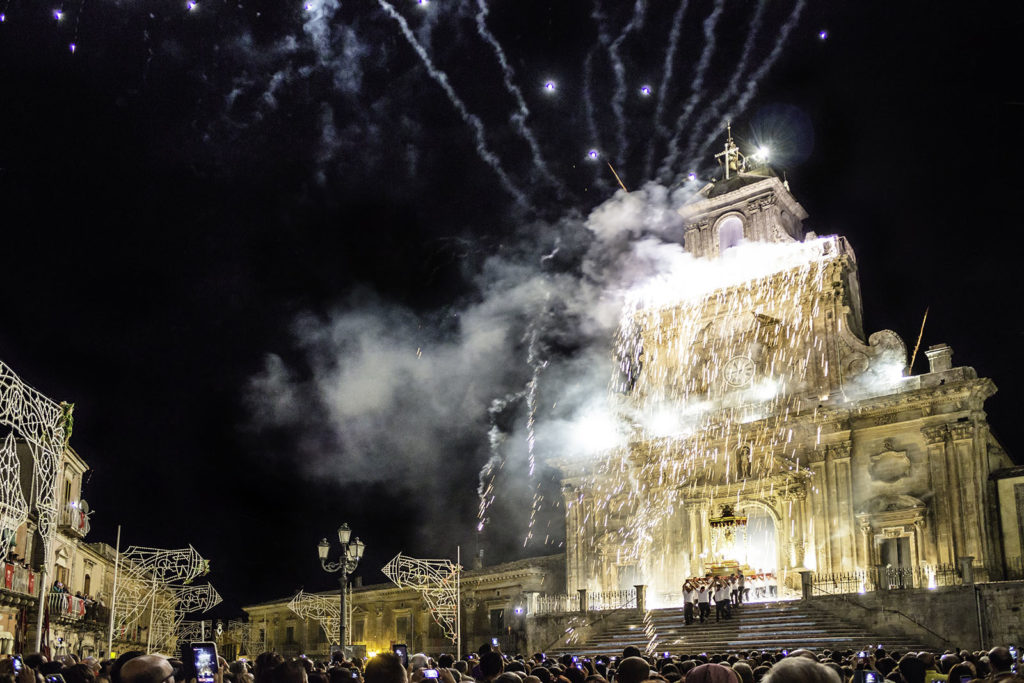In Palazzolo Acreide
St. Sebastian
is so highly revered that there are two feasts!
The first celebration takes place on the 20th of January, the official day, and the other on the 10th of August. The summer feast is not only important from the religious point of view, but is enriched and completed with a series of activities and performances involving a large number of people.
The choice of date was not at all accidental; first of all it, it meant certain good weather and secondly, it coincided with the wheat harvest.
In addition, following the great migration north and overseas, the summer period was also the time when many Sicilians returned home for their holidays.
Therefore, once the day was decided, all that was left to do was to begin the festivities, which last ten days, from 8th to 17th August, and retrace the traditional rites and functions with musical performances, exhibitions and all kinds of events.
The 10th of August is clearly the more important day. It is the day of the “sciuta”, when the Saint and relics are taken from the churches carried on people’s shoulders as small firecrackers and thousands of “nsareddi”, 2-metre-long multi-coloured paper strips are thrown.
The marching band and fireworks are also not to be missed.
 It is a feast where the entire country comes to a standstill and the enthusiastic community participates in the celebrations.
It is a feast where the entire country comes to a standstill and the enthusiastic community participates in the celebrations.